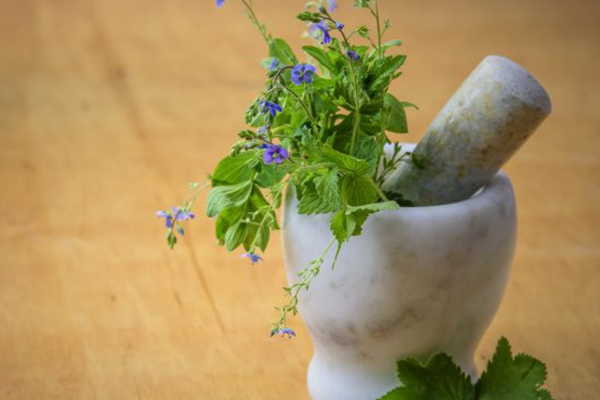Starting Journey on a very personal note where I enrolled in the IIN Health Coaching course. My aim was to be able to come out of my own health issues and hormonal imbalances which I suffered from. Despite doing everything right halfway through the course, I understood that I need to work on making my Gut Health stronger. Read More
Herbs for healing diseases
Diseases are on Rising with the rising levels of pollution over the years and the kind of smog the city witnesses these days, it’s evident that the number of cases of people suffering from Asthma, Bronchitis, Breathing issues and Allergies has gone up manifolds. Meanwhile, the number of fresh cases are on a rise, the condition of people suffering from early on is going bad to worse. Kids are easily falling prey to these ailments and allergies as their immune systems are still building up.
Can Diet play a role?
Our DIET plays a very important role in keeping us healthy with these ongoing changes in the environment. The food that we eat has the power to be our own medicine and a preventive cure as well. There is one component in our foods that are often ignored and not given much attention to while deciding a meal. It’s the herbs and spices. Herbs for healing diseases have been known in our Ayurvedic medicine long ago. These potent herbs have healing properties to prevent us from many diseases and allergies.
Herbs for healing diseases are a part and parcel of a wholesome diet
A number of herbs for healing diseases have been used as natural remedies for allergies over the years. Some alternative treatment and herb for healing diseases and their associated risks and benefits include:
- Tulsi, Holy Basil– Tulsi is an excellent herb for healing diseases. It is known to help relieve the symptoms of allergies, breathing problems, and bronchitis. It can be had a couple of leaves straightaway. Or can be had as a tea. Herbal supplements of Tulsi are also available these days. However, the only natural ones are the ones to go for.
- Garlic has been used as a natural herb for healing diseases, particularly cardiovascular disease, because of its anti-inflammatory properties. Since asthma and allergy is an inflammatory disease, garlic also helps relieve asthma symptoms. The use of garlic as an alternative treatment for asthma is, however, currently being studied.
- Ginger is also used as a herb for healing diseases, and a recent study did show that oral ginger supplements were linked to improvement in asthma symptoms. It can also be taken as a detox drink, used in making ginger tea. It’s very relieving to throat infections as well. It can be had as a concoction of ginger and honey with a bit of black pepper. It’s an excellent reliever of breathing-related allergies and helps in clearing the nasal passage immensely.
- Turmeric- Turmeric powder is a great herb for healing diseases. It is also effective against allergic conjunctivitis. Turmeric can help reduce inflammation in the eyes. It has antibacterial properties that prevent any further infection in the eye. Soak a piece of cotton or cloth to a pot of boiled turmeric water. Use the soaked cloth piece as a warm compress to treat allergic conjunctivitis. Turmeric also has anti-inflammatory properties and helps in curing asthma, bronchitis as well.
- Butterbur– Butterbur is a type of herb that has a well-respected reputation as a natural remedy for migraines. And, in numerous studies, it has also been shown to significantly improve unpleasant allergy symptoms. The researchers also concluded that butterbur is a smart choice for anyone looking to improve their allergy symptoms while avoiding the sedative effects of antihistamines. However, this herb has some side effects associated with it as well. Overconsumption is not recommended in any case.
- Stinging Nettle Leaf/ Bichhoo Buti– Stinging nettle is a perennial flowering plant that has been used medicinally for ages, dating back as far as ancient Greece. Regarding seasonal allergies, stinging nettle has been shown to have excellent anti-inflammatory abilities. This is important because it is those inflammatory events that cause seasonal allergy symptoms.
- Rosemary– Fresh and dried rosemary is already popular additions to many culinary creations and, in recent years, research has shed a light on rosemary’s ability to help fight allergy symptoms and provide relief to asthma sufferers. According to a study, this popular herb contains rosmarinic acid, which has both anti-inflammatory and antioxidant effects. The study also reveals that rosmarinic acid is a free radical scavenger that can suppress the inflammatory responses of certain white blood cells, as well as allergic antibodies. In other words: Rosmarinic acid should help improve seasonal allergy symptoms. Just one word of caution: If you’re taking rosmarinic acid as a supplement, it may help to take it with food to prevent a potential mild stomachache.
- Oregano– Oregano is a well known Italian herb and is used in our kitchens these days. It’s also available in the form of supplements for certain health benefits. Those supplements include Oregano oil extract. The oregano oil extract is an herbal supplement. It’s available in supplement form, as a pill, and as a soft gel capsule. These usually contain other ingredients to dilute oregano oil, since it’s very potent. The capsules can be taken orally, or cut open and applied to the skin, provided they’re not full strength. Oregano oil is also available as a highly concentrated essential oil that comes in liquid form. The oil may come premixed with a carrier oil or it may be purchased full strength. If it’s not premixed, you’ll have to dilute it yourself by combining it with a carrier oil, such as coconut or olive oil. The usual recipe is 5 to 6 drops for every ounce of carrier oil.
Contact our qualified nutrition and holistic health experts over a one time Free Consultation Call and get your own customized diet plan.
[/vc_column_text][/vc_column][/vc_row]
